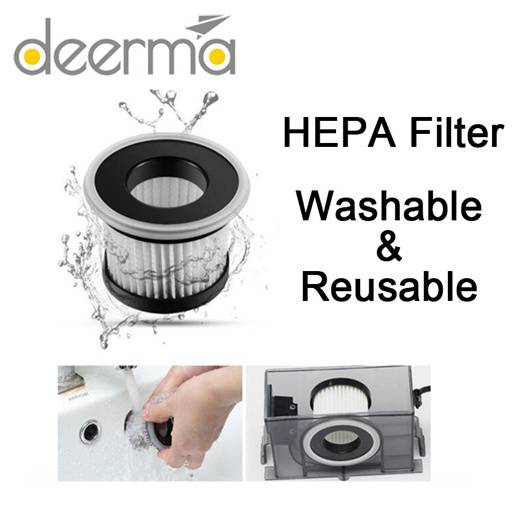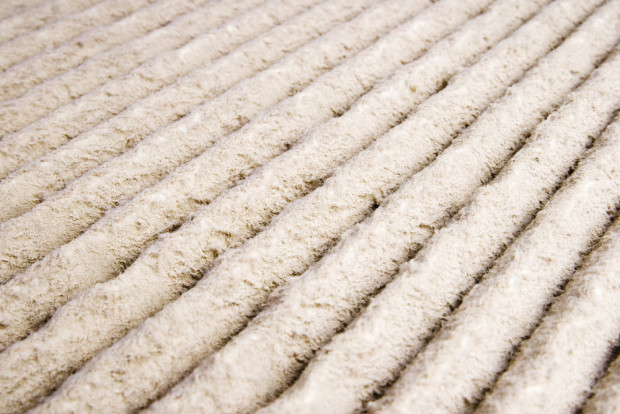
Why CM800 HEPA Filter can't be reuse permanently after washing
3 REASONS YOU SHOULDN’T CLEAN AND REUSE A DISPOSABLE AIR FILTER
November 17, 2015

Some air filters — permanent and semipermanent models — can be cleaned as part of regular HVAC system maintenance and replaced for continuous use. A disposable air filter, however, doesn’t work the same way. At regular intervals, you must remove it from the HVAC cabinet, throw it away, and install a fresh filter. Disposable air filters shouldn’t be vacuumed or moistened. Learn some of the reasons these filters can’t be cleaned and reused in your HVAC system of your Savannah, Georgia, home.
VACUUMING A FILTER CAN’T REACH THE INNER FIBERS
As time passes, your air filter collects many contaminants, including dust, pollen, and dirt. The contaminant particles can get buried deep in the filter’s fibers, so a vacuum cleaner won’t extract all of them. The particles will create a barrier in the air filter and prevent air from passing through, which could damage your HVAC system or make it less efficient.
WETTING A FILTER CAN ENCOURAGE MOLD GROWTH
Reusable filters can be washed and replaced. However, the disposable filters you use in your HVAC system aren’t made to shed water after they get wet. The moisture the filter retains can encourage mold growth over time, and your HVAC system might spread the mold spores throughout the rest of your home. Plus, wetting a disposable filter makes it far less effective, so you’ll see decreases in energy efficiency and indoor air quality.
HANDLING A FILTER CAN DAMAGE ITS INTEGRITY
Some consumers attempt to clean their disposable HVAC air filters by shaking them outside or attempting to pick off pet hair, dust, and dirt. While these actions might seem like easy ways to save money and conserve resources, shakes or cleaning attempts can cause damage to the filters. If you tear a hole in the fibers or loosen the fiber density, your air filters cannot work as well as before.
Instead of cleaning a disposable air filter, throw it away and replace it with a new one. Alternatively, consider reusable filters that last years with regular cleaning. If your reusable filters don’t seem to be working properly in your system, consult the HVAC guidance and services of Byrd Heating and Air Conditioning. Call 912-373-8447 to schedule an appointment with one of the team’s qualified technicians.
Image provided by Shutterstock
How to Clean and Wash HEPA Filters? Here’s Why You Shouldn’t
by Choon Khin

Can you clean a HEPA filter? If so, how should you wash or clean a HEPA filter?
These questions keep cropping up, as they’re just about the only remaining problem for HEPA filters.
HEPA filters are almost perfect: they are backed by tons of scientific tests; they’re pretty cheap; they use about as much energy as a lightbulb; and they even have documented health benefits. But replacing them as opposed to washing them isn’t ideal. It would be great if we can clean and wash and re-use HEPA filters.
Some ‘Experts’ Say You Can Clean HEPA Filters
On the question-answer site Quora, I’ve seen industry insiders say you can clean HEPA filters by banging the HEPA filter to get the dust out:

Some people even say you can clean HEPA filters by vacuuming them:

…or even by washing HEPA filters with water. Yet other experts say you can NEVER clean HEPA filters.

But one thing I haven’t seen is anyone actually test the question and present the data. To get to the bottom of whether we should clean HEPA filters, and the best way to clean them, Smart Air engineer CK tested washing and cleaning HEPA filters in the Smart Air lab.

When you search for “how to clean HEPA filter,” you will see two methods to clean HEPA filters: vacuuming and washing. Smart Air put both of these to the test.
1. Cleaning HEPA filters by Vacuuming
The first test we tried was vacuuming HEPA filters. We took a dirty HEPA filter, ran tests on its performance before cleaning, vacuumed it, and then ran more performance tests after cleaning it. In all, 8 dirty HEPAs which had been used for 3-4 months in Beijing air were tested.

Testing Effectiveness of Vacuumed HEPA Filters
For each cleaning method, CK ran 3 types of tests to measure the performance increase or decrease in the HEPA filter before and after cleaning. CK tested:
- Particle Capture: To see how cleaning the HEPA filter impacted capture performance, the percentage of 0.3 micron particles by the HEPA was measured before and after cleaning. 0.3 micron particles are a great benchmark because they are the hardest particle size for HEPAs to capture.
- Air Flow: The amount of air traveling through the HEPA filter before and after cleaning can tell us if the HEPA filter is less clogged, or if the fibers in the HEPA filter have been damaged due to washing.
- CADR: CADR is the ‘gold standard’ for measuring an air purifier’s performance. It measured the total combined impact (particle capture + air flow) of washing on the HEPA filter
Here’s how the 8 HEPA filters that were vacuumed performed before and after cleaning:

Should You Vacuum HEPA Filters: Results
On average, vacuuming increased CADR by about 10%. But there was also a lot of variance, ranging from a 14% increase to a 3% decrease. Based on that data, cleaning a HEPA by vacuuming might help a little, but there’s also a decent chance it’ll do nothing at all, or it could even damage your filter.
What’s The Vacuum Doing to the HEPA Filter?
HEPAs are made of thin fibers. The vacuum is probably pulling out some of the larger dust particles from the HEPA filter, but at the same time some of these fibers as well. You can see what looks like fibers that have been pulled loose in this picture.

Vacuuming bottom line: There may be a slight benefit of vacuuming HEPAs, but the benefit is small, and it can also damage the HEPA. Therefore, we do not recommend vacuuming.
2. Cleaning HEPA filters by Washing With Water
Vacuuming did very little to improve the HEPA filters’ effectiveness. So, how about washing HEPA filters instead? This time, CK tested 3 HEPA filters by washing them under a shower head (with water only) and then leaving them to dry for a day.

Should You Wash HEPA Filters With Water: Results
I stopped testing after 3 trials because the results were so conclusive: washing HEPA filters with water decreased effectiveness by an average of 32%.
Why Is It Bad to Wash HEPA Filters?
To get to the bottom of why washing was so bad for the HEPAs, I looked at wind speed and particle capture before and after washing.
First, washing actually increased the amount of air passing through the HEPA filter.

Great, right!? But then the particle capture of the HEPA filter actually went down a lot after washing.

Washing the HEPA filters probably broke some of the fibers or made the gaps between the fibers larger. That would explain why more air passed through after washing, but also more particles!
Washing bottom line: Washing HEPA filters with water significantly decreases performance.
Bottom Line: How to Clean and Wash a HEPA Filter?
- Vacuuming HEPAs may improve performance, but the effect is small.
- Washing HEPAs strongly decreases performance. We do not recommend washing HEPAs.
Therefore, HEPA filters should still be replaced when it starts to get clogged and its effectiveness dropped. When is this? Learn why the standard numbers might not always be accurate.
Source from: https://byrdheatingandair.com/blog/3-reasons-you-shouldnt-clean-and-reuse-a-disposable-air-filter and https://smartairfilters.com/en/blog/how-to-clean-wash-hepa-filter/

 Login with Google
Login with Google



